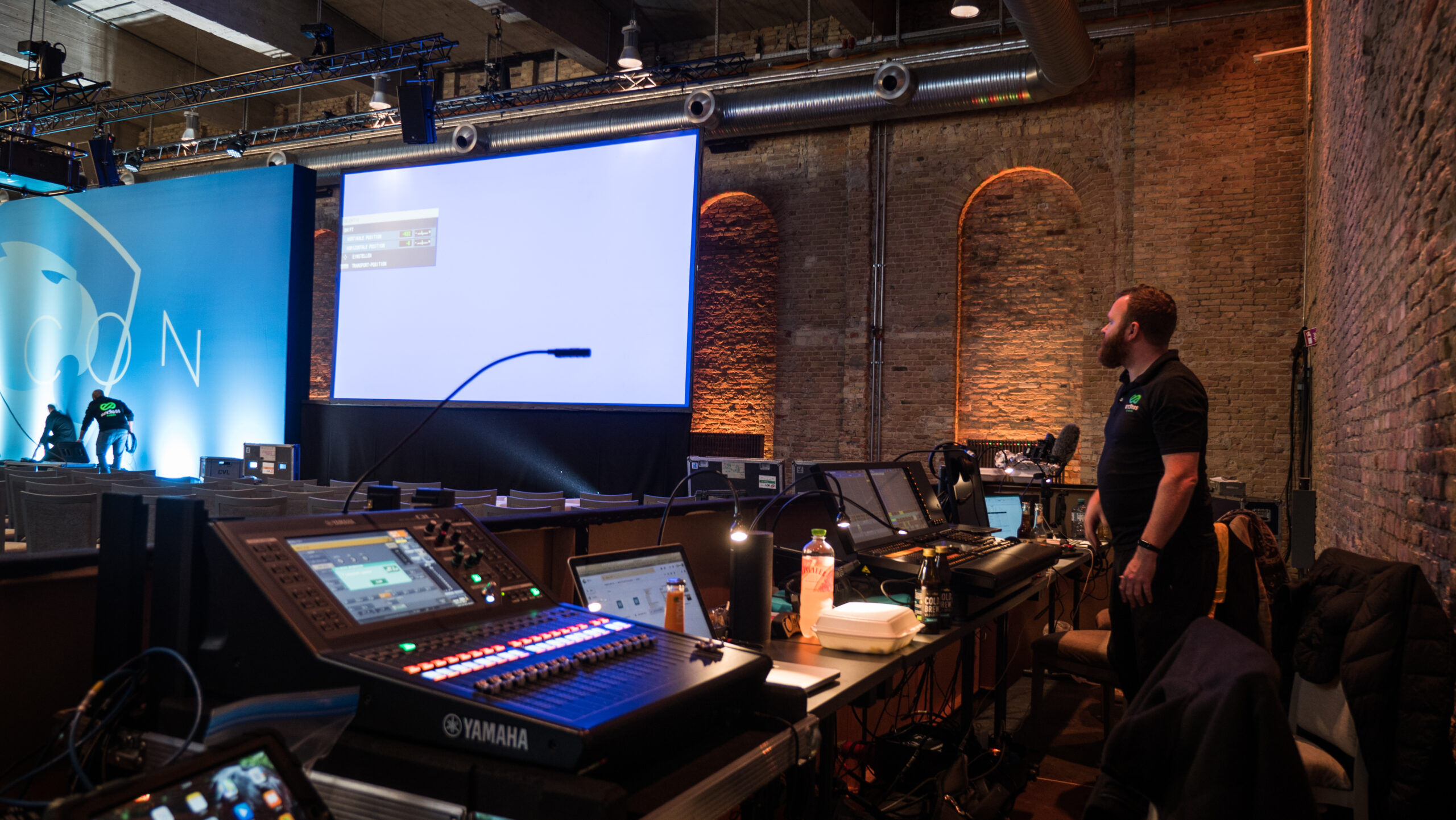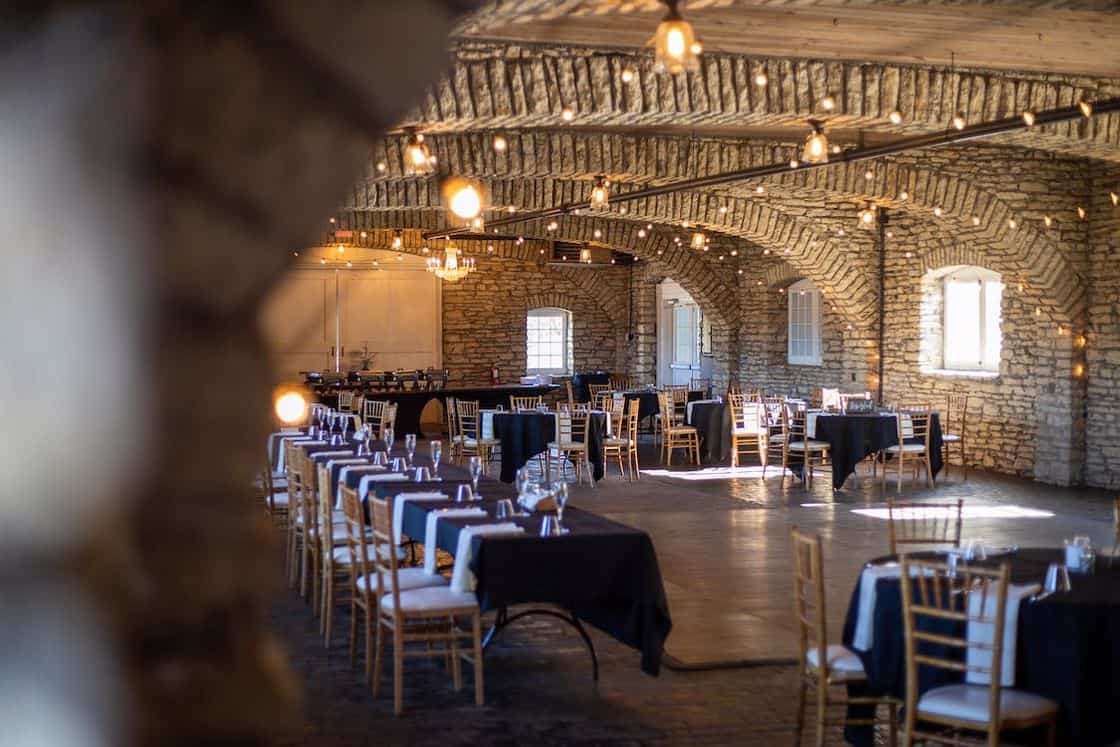How Event Production Works: A Comprehensive Take A Look At the Refine
Event production is a facility and organized process that calls for mindful preparation and execution. It starts with developing clear purposes and understanding the target audience. Each action, from budgeting to venue selection, plays a critical duty in making sure success. As the procedure unravels, numerous elements must line up perfectly. Yet, the nuances of this detailed procedure often go undetected. What are the essential stages that add to a memorable event?

The Initial Drawing Board
When starting on event production, mindful preparation is important to ensure a successful outcome. The first preparation stage serves as the foundation for all subsequent efforts. Throughout this stage, event producers should specify the event's objective and goals plainly. Determining the target market helps customize the experience and messaging, guaranteeing relevance and engagement.Producers must likewise consider the event style, whether it be in-person, virtual, or hybrid, as this will certainly influence various logistical aspects. Picking an ideal day and place is vital, as it impacts ease of access and availability.Furthermore, assembling a dependable group is basic for splitting responsibilities and improving interaction. Developing a timeline with milestones warranties all tasks are completed on time. This phase entails detailed study, consisting of identifying potential difficulties and designing strategies to minimize dangers. Ultimately, a well-structured first planning stage sets the tone for a successful event production trip.

Budgeting and Source Appropriation
In event production, reliable budgeting and resource allowance are important for success - event production charlotte. Developing financial specifications establishes the foundation for all subsequent choices, while resource circulation methods assure that every part of the event is adequately sustained. Together, these components aid preserve control over expenses and enhance using offered resources
Establishing Financial Parameters
Establishing monetary parameters is important to the success of any event production, as it establishes the foundation for reliable budgeting and resource allocation. This process starts with specifying the general budget plan, which encompasses all facets of the event, consisting of place costs, catering, and advertising and marketing. By determining offered funds, event organizers can focus on expenditures and assign resources as necessary. Additionally, it is vital to conduct detailed market research to expect possible costs and identify funding resources, such as sponsorships or ticket sales. Developing clear monetary specifications also help in risk monitoring, enabling planners to reserve contingency funds for unforeseen costs. Ultimately, a well-defined budget plan offers as a roadmap, assisting the event production team towards attaining their objectives while maintaining monetary control.
Source Circulation Methods
Efficient resource distribution methods are important for maximizing the impact of an event while sticking to budget restrictions. Effective event production needs a meticulous approach to budgeting and resource allowance. Coordinators must prioritize vital components such as place, catering, and technology, making certain that funds are assigned to areas that enhance participant experience. An in-depth spending plan needs to outline expected costs and determine locations for prospective cost savings, such as bargaining with vendors or checking out sponsorship opportunities. In addition, tracking expenditures throughout the planning process assists stop overspending. By utilizing critical resource circulation, event manufacturers can supply a remarkable experience while preserving monetary obligation, ultimately adding to the total success of the event.
Venue Choice and Logistics
Choosing the best location is vital to the success of any type of event, as it sets the stage for the overall experience. Venue selection entails examining numerous variables, consisting of ability, ease of access, and area. Coordinators should think about the target market and the nature of the event, guaranteeing the location aligns with the event's goals.Logistics play a considerable duty in this procedure, including plans for seating, audiovisual equipment, and catering services. A well-chosen place should help with smooth circulation for guests and personnel, boosting engagement.Additionally, evaluating possible locations for features like auto parking, restrooms, and fire escape is necessary for safety and comfort. The timeline for securing the venue is additionally crucial, as preferred locations might schedule swiftly - event production charlotte. Subsequently, detailed preparation and prompt execution can eventually add to a seamless event experience, making location choice and logistics essential components of successful event production
Imaginative Idea Growth
While the venue sets the physical stage, creative idea growth forms the event's identity and narrative. This process starts with identifying the event's purpose and target audience, permitting event producers to formulate a compelling theme that resonates with guests. Brainstorming sessions frequently consist of diverse viewpoints, cultivating cutting-edge ideas that straighten with the event's goals.Once a theme is developed, visual components such as shade schemes, signage, and decor are developed to boost the total environment. Storytelling methods may additionally be integrated to develop an appealing journey for participants, ensuring an unforgettable experience. Additionally, considerations regarding home entertainment, tasks, and interactive parts are lined up with the picked idea, enhancing the motif throughout the event.Ultimately, effective imaginative idea advancement guarantees that every facet of the event functions cohesively, leaving a long lasting impact on guests and meeting the event's goals. This foundational job lays the groundwork for subsequent planning and implementation stages.
Working together With Suppliers and Suppliers
Successful event production hinges on efficient partnership with suppliers and providers. Selecting trustworthy companions, discussing contracts efficiently, and making sure prompt deliveries are critical action in this process. Each of these factors adds significantly to the general success and smooth execution of an event.
Choosing Reliable Allies
Just how can event coordinators ensure a seamless production experience? Selecting trustworthy companions is vital in accomplishing this objective. Event organizers must conduct extensive research to determine vendors and providers with a tried and tested record of quality. This consists of examining references, assessing profiles, and evaluating consumer feedback. Organizers ought to prioritize partners who demonstrate professionalism, prompt interaction, and a desire to collaborate. Structure solid connections fosters trust and makes it possible for fast analytical during the event. Additionally, it is useful to select regional vendors who comprehend the location and local logistics. Ultimately, a successful event rests on the harmony in between coordinators and their companions, guaranteeing that every aspect of production runs smoothly and effectively.
Working Out Contracts Properly
Efficient negotiation of agreements is an important step in the partnership in between event planners and their vendors and vendors. This procedure entails clear communication of assumptions, deliverables, and timelines. Organizers should conduct extensive research on market prices and sector requirements to establish a standard for negotiations. It is very important to produce a joint ambience, encouraging open discussion Related Site concerning terms, pricing, and possible backups. Organizers should additionally prioritize understanding the supplier's capabilities and limitations to straighten their needs effectively. Flexibility can result in mutually valuable arrangements, promoting lasting partnerships. Crafting well-defined agreements that consist of particular performance metrics can help assure liability, inevitably bring about successful event implementation and satisfaction for all parties entailed.
Making Sure Timely Distributions
Timely deliveries are important for the smooth implementation of any event, requiring persistent collaboration in between planners and their suppliers and providers. Reliable communication is essential, as it assists establish clear expectations concerning delivery routines, quantities, and particular requirements. Organizers commonly develop comprehensive timelines to describe vital landmarks, guaranteeing all parties remain lined up throughout the process. Routine check-ins with vendors can aid recognize prospective hold-ups early, allowing for proactive options. Furthermore, constructing solid connections with trustworthy distributors cultivates count on and accountability, which can lead to far better service and prioritization. By focusing on see this website these collaborative initiatives, planners can reduce disturbances, therefore improving the overall effectiveness of event production and making certain that all necessary materials and solutions show up as prepared.
Marketing and Promo Techniques
While arranging an occasion, the success of advertising and marketing and promotion strategies can significantly affect attendance and interaction. Reliable approaches often consist of a combination of electronic marketing, standard advertising and marketing, and grassroots outreach. Making use of social media platforms permits real-time interaction and targeted advertising and marketing, getting to specific demographics effectively. Email advertising campaigns can better engage possible guests with tailored material and reminders.Collaborations with influencers or market leaders can additionally boost trustworthiness and broaden reach. Creating interesting web content, such as video clips or blogs, assists to generate buzz and suffer interest leading up to the event. Additionally, leveraging early-bird discounts and special advantages can incentivize ticket purchases.Promoting with conventional channels, such as posters or regional media, stays appropriate, specifically in community-focused events. A detailed method that incorporates multiple techniques guarantees optimum visibility and engagement, inevitably adding to the event's success and the development of a remarkable experience for attendees.
On-Site Implementation and Administration
On-site implementation and monitoring are important parts that figure out the general success of an occasion. Reliable control throughout the event ensures that all elements straighten with the intended schedule. Event managers supervise logistics, consisting of vendor sychronisation, devices arrangement, and visitor services. Checking timelines and dealing with any kind of unforeseen concerns are basic for preserving a seamless experience.The staff plays a significant role, as skilled employees are liable for different tasks such as enrollment, web link info circulation, and technological assistance. Communication amongst employee is important; it fosters a collective setting and enables fast resolution of challenges.Additionally, safety and security protocols have to be adhered to, protecting the health of all participants. Post-event examinations are also part of on-site monitoring, providing insights for future improvements. By focusing on these facets, event manufacturers can develop unforgettable experiences that meet or go beyond guest assumptions while attaining the event's purposes.
Often Asked Inquiries
How Do I Choose the Right Event Theme?
Choosing the ideal event motif entails thinking about the target market, event objective, and location. Researching current trends and collecting input from stakeholders can additionally inspire innovative ideas that reverberate and produce an unforgettable experience.

What Prevail Blunders in Event Production?
Typical mistakes in event production frequently consist of poor preparation, poor communication among team members, budget mismanagement, ignoring to think about the target market's needs, and falling short to perform a complete post-event evaluation for future enhancements.
Exactly How Can I Measure Event Success?
To gauge event success, one can analyze attendee satisfaction, engagement degrees, budget adherence, and post-event responses. Trick performance indications, such as ticket sales and social networks communications, likewise provide beneficial understandings right into general effectiveness.
What Should I Do if It Drizzles on the Event Day?
In the event of moisten the day, the coordinator must apply contingency plans, such as protecting tents or relocating activities indoors. Communication with attendees about changes is important to guarantee a smooth experience despite weather challenges.
Just How Can I Guarantee Guest Engagement Throughout the Event?
